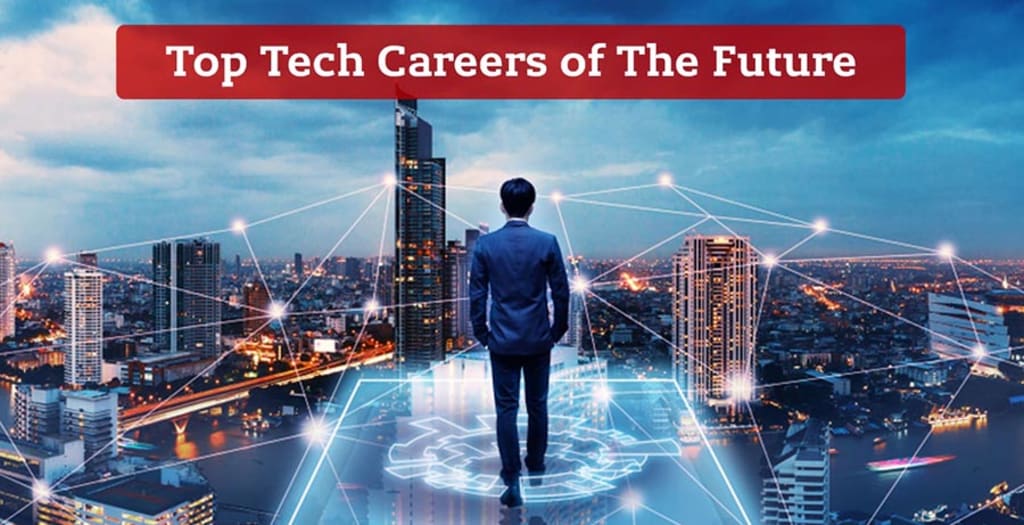Future-Ready Courses Paving the Way for Eco-Friendly Futures
Sustainable Horizons:

Introduction:
In a world facing urgent environmental challenges, the pursuit of sustainability has become more crucial than ever. From climate change to resource depletion, the need to adopt eco-friendly practices is paramount to safeguarding our planet for future generations. Fortunately, education plays a pivotal role in driving sustainability forward, and future-ready courses are emerging as powerful tools for empowering individuals to embrace sustainable practices. In this article, we will delve into the realm of eco-friendly futures and explore how future-ready courses are shaping a more sustainable world.
Understanding the Urgency of Sustainable Practices:
The need for sustainable practices stems from the recognition of the finite nature of our planet's resources and the detrimental impact of human activities on the environment. Climate change, driven primarily by greenhouse gas emissions from burning fossil fuels, poses a severe threat to ecosystems, biodiversity, and human well-being. Additionally, unsustainable consumption and production patterns contribute to pollution, deforestation, and habitat destruction, exacerbating environmental degradation and accelerating the loss of biodiversity.
Against this backdrop, there is a growing consensus that urgent action is needed to transition to a more sustainable future. Sustainable practices, defined as actions that meet the needs of the present without compromising the ability of future generations to meet their own needs, offer a pathway toward addressing environmental challenges while promoting social equity and economic prosperity. From renewable energy and circular economy initiatives to green infrastructure and conservation efforts, sustainable practices encompass a wide range of strategies aimed at minimizing environmental impact and maximizing resource efficiency.
Exploring Future-Ready Courses in Sustainability:
Future-ready courses are designed to equip individuals with the knowledge, skills, and mindset needed to thrive in a rapidly changing world. In the context of sustainability, future-ready courses play a vital role in preparing students to understand, advocate for, and implement eco-friendly practices in various domains. Here are some unique areas of focus for future-ready courses in sustainability:
Sustainable Development and Global Citizenship:
Future-ready courses often begin with an exploration of the principles and frameworks of sustainable development, including the United Nations Sustainable Development Goals (SDGs). Students learn about the interconnectedness of social, economic, and environmental issues and examine strategies for achieving sustainable development at local, national, and global levels. By fostering a sense of global citizenship and responsibility, these courses empower students to engage in critical thinking and activism to address pressing environmental and social challenges.
Renewable Energy and Clean Technologies:
One of the cornerstones of sustainability is the transition to renewable energy sources and clean technologies. Future-ready courses in renewable energy and clean technologies explore the principles and applications of solar, wind, hydro, geothermal, and biomass energy systems. Students learn about the technical, economic, and environmental aspects of renewable energy deployment, as well as emerging technologies such as energy storage, smart grids, and electric vehicles. By mastering the fundamentals of renewable energy, students are prepared to contribute to the transition to a low-carbon future.
Sustainable Business Practices and Corporate Social Responsibility (CSR):
Businesses play a pivotal role in driving sustainability forward through responsible practices and ethical decision-making. Future-ready courses in sustainable business practices and CSR examine the business case for sustainability, including the potential for cost savings, risk mitigation, and brand enhancement. Students learn about sustainability reporting frameworks, stakeholder engagement strategies, and green marketing techniques. Additionally, students explore case studies of companies leading the way in sustainability, gaining insights into best practices and innovative approaches to sustainable business.
Circular Economy and Waste Management:
The concept of a circular economy, which aims to minimize waste and maximize the value of resources through closed-loop systems, is gaining traction as a key strategy for achieving sustainability. Future-ready courses in the circular economy and waste management delve into principles such as reduce, reuse, recycle, and explore innovative approaches to resource management, product design, and waste reduction. Students learn about circular business models, material flow analysis, and sustainable consumption patterns, as well as policy instruments and regulations aimed at promoting circularity.
Sustainable Agriculture and Food Systems:
Agriculture and food production are significant contributors to environmental degradation, including deforestation, water pollution, and greenhouse gas emissions. Future-ready courses in sustainable agriculture and food systems examine the environmental, social, and economic impacts of conventional agricultural practices and explore sustainable alternatives. Students learn about organic farming, agroecology, permaculture, and regenerative agriculture, as well as strategies for promoting food security, biodiversity conservation, and equitable access to nutritious food.
Environmental Policy and Governance:
Effective environmental policy and governance are essential for driving systemic change and promoting sustainability at the local, national, and international levels. Future-ready courses in environmental policy and governance examine the policy-making process, regulatory frameworks, and institutional arrangements for environmental management and protection. Students learn about environmental law, environmental impact assessment, and participatory decision-making processes, as well as the role of civil society, businesses, and multilateral institutions in shaping environmental policy.
Case Studies and Practical Applications:
In addition to theoretical knowledge, future-ready courses often incorporate case studies, real-world projects, and experiential learning opportunities to deepen students' understanding of sustainability and its practical applications. For example, students may engage in community-based projects to design and implement sustainable initiatives in collaboration with local stakeholders. They may also participate in internships or externships with organizations working on sustainability issues, gaining hands-on experience and networking opportunities in the field.
Conclusion:
As we confront the urgent challenges of climate change, resource depletion, and environmental degradation, the importance of sustainability education has never been clearer. Future-ready courses play a critical role in preparing individuals to understand, advocate for, and implement eco-friendly practices in various domains. By equipping students with the knowledge, skills, and mindset needed to thrive in a rapidly changing world, these courses empower individuals to contribute to the transition to a more sustainable future. As we embark on this journey toward eco-friendly futures, let us embrace the transformative power of education to shape a brighter, more sustainable world for all.
About the Creator
KEVIN FRENCH
I am a financial expert and author, helping others achieve financial freedom through practical and psychological strategies. I have helped thousands of people improve their financial literacy and reach their goals.
Enjoyed the story? Support the Creator.
Subscribe for free to receive all their stories in your feed. You could also pledge your support or give them a one-off tip, letting them know you appreciate their work.






Comments
There are no comments for this story
Be the first to respond and start the conversation.